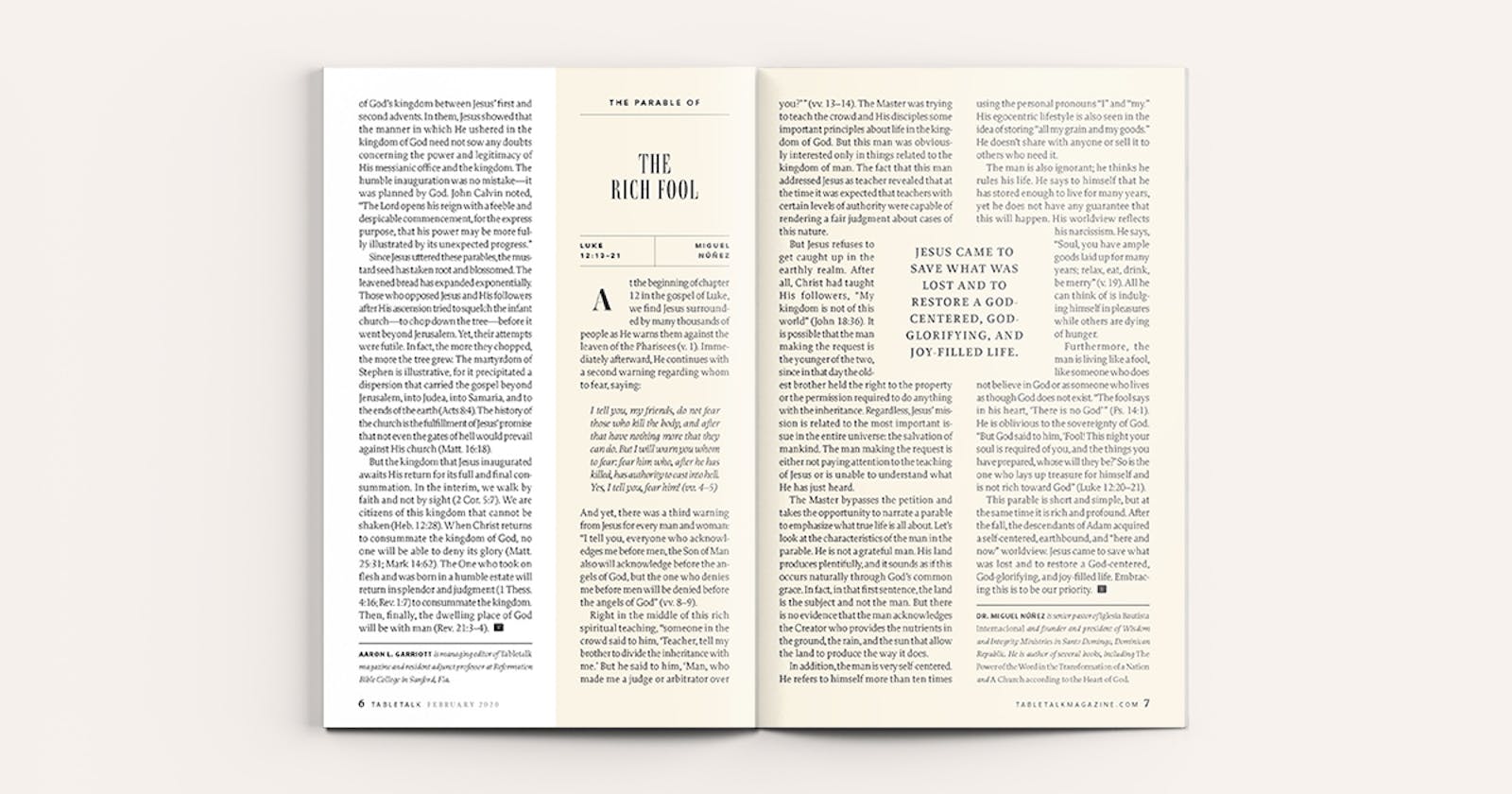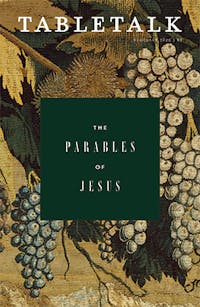
Request your free, three-month trial to Tabletalk magazine. You’ll receive the print issue monthly and gain immediate digital access to decades of archives. This trial is risk-free. No credit card required.
Try Tabletalk NowAlready receive Tabletalk magazine every month?
Verify your email address to gain unlimited access.
At the beginning of chapter 12 in the gospel of Luke, we find Jesus surrounded by many thousands of people as He warns them against the leaven of the Pharisees (v. 1). Immediately afterward, He continues with a second warning regarding whom to fear, saying:
I tell you, my friends, do not fear those who kill the body, and after that have nothing more that they can do. But I will warn you whom to fear: fear him who, after he has killed, has authority to cast into hell. Yes, I tell you, fear him! (vv. 4–5)
And yet, there was a third warning from Jesus for every man and woman: “I tell you, everyone who acknowledges me before men, the Son of Man also will acknowledge before the angels of God, but the one who denies me before men will be denied before the angels of God” (vv. 8–9).
Right in the middle of this rich spiritual teaching, “someone in the crowd said to him, ‘Teacher, tell my brother to divide the inheritance with me.’ But he said to him, ‘Man, who made me a judge or arbitrator over you?’ ” (vv. 13–14). The Master was trying to teach the crowd and His disciples some important principles about life in the kingdom of God. But this man was obviously interested only in things related to the kingdom of man. The fact that this man addressed Jesus as teacher revealed that at the time it was expected that teachers with certain levels of authority were capable of rendering a fair judgment about cases of this nature.
But Jesus refuses to get caught up in the earthly realm. After all, Christ had taught His followers, “My kingdom is not of this world” (John 18:36). It is possible that the man making the request is the younger of the two, since in that day the oldest brother held the right to the property or the permission required to do anything with the inheritance. Regardless, Jesus’ mission is related to the most important issue in the entire universe: the salvation of mankind. The man making the request is either not paying attention to the teaching of Jesus or is unable to understand what He has just heard.
The Master bypasses the petition and takes the opportunity to narrate a parable to emphasize what true life is all about. Let’s look at the characteristics of the man in the parable. He is not a grateful man. His land produces plentifully, and it sounds as if this occurs naturally through God’s common grace. In fact, in that first sentence, the land is the subject and not the man. But there is no evidence that the man acknowledges the Creator who provides the nutrients in the ground, the rain, and the sun that allow the land to produce the way it does.
In addition, the man is very self-centered. He refers to himself more than ten times using the personal pronouns “I” and “my.” His egocentric lifestyle is also seen in the idea of storing “all my grain and my goods.” He doesn’t share with anyone or sell it to others who need it.

The man is also ignorant; he thinks he rules his life. He says to himself that he has stored enough to live for many years, yet he does not have any guarantee that this will happen. His worldview reflects his narcissism. He says, “Soul, you have ample goods laid up for many years; relax, eat, drink, be merry” (v. 19). All he can think of is indulging himself in pleasures while others are dying of hunger.
Furthermore, the man is living like a fool, like someone who does not believe in God or as someone who lives as though God does not exist. “The fool says in his heart, ‘There is no God’ ” (Ps. 14:1). He is oblivious to the sovereignty of God. “But God said to him, ‘Fool! This night your soul is required of you, and the things you have prepared, whose will they be?’ So is the one who lays up treasure for himself and is not rich toward God” (Luke 12:20–21).
This parable is short and simple, but at the same time it is rich and profound. After the fall, the descendants of Adam acquired a self-centered, earthbound, and “here and now” worldview. Jesus came to save what was lost and to restore a God-centered, God-glorifying, and joy-filled life. Embracing this is to be our priority.
